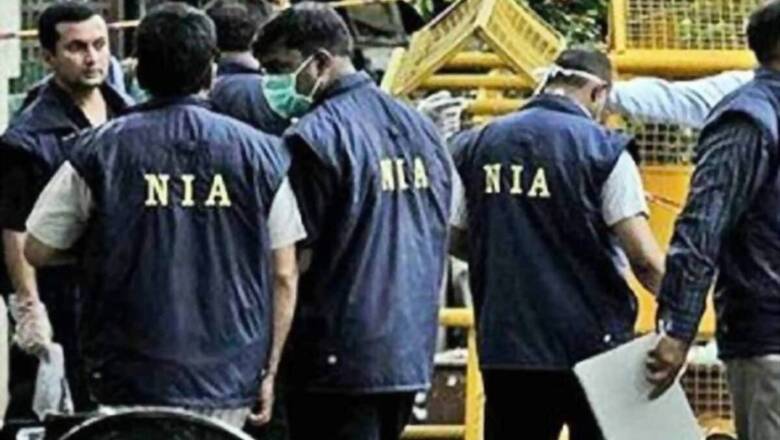
views
The National Investigation Agency (NIA) is expected to file charges in a Delhi court later this week against 12 residents of West Bengal’s Murshidabad it says had founded an al-Qaeda terrorist cell, government sources have told News18.
The cell’s leadership is alleged to have been seeking to source weapons, ammunition and explosives from Bangladesh to execute multiple terrorist attacks, including the assassination of a prominent anti-Islamist blogger.
Last week, a special court in Kolkata had sentenced Jahidul Islam, a resident of Jamalpur in Bangladesh, to 29 years of imprisonment for his role in setting up an Indian branch of the Bangladesh-based Jama’at Mujahideen Bangaldesh, which among other things planted bombs at a Buddhist temple in 2018.
A senior NIA official said the new chargesheet will demonstrate that jihadist recruitment has continued across the region since, pushed not only by well-established terrorist groups across the border but self-financing.
“This group’s leadership believed the communally-fraught climate created by tensions around the Citizenship Amendment Act and National Register of Citizens would facilitate recruitment”, the official said.
NIA investigators allege that the al-Qaeda cell was founded by Murshidabad-born Murshid Hasan, who encountered jihadist propaganda online while working in Kerala’s Ernakulam. Hasan, they claim, was in particular drawn to online speeches delivered by Tamim al-Adnani and Jashimuddin Rehmani, both leaders of the al-Qaeda affiliated Ansarullah Bangla Team.
Bangladesh and Pakistan-based al-Qaeda leaders, the NIA says, encouraged Hasan to set up a local cell, for which he recruited several other Murshidabad residents. The group, the NIA’s charge-sheet will allege, used encrypted chat platforms to discuss weapons procurement techniques to fabricate improvised explosive devices and raise funds.
Even though the group hoped to find financiers for its plans from among Islamist circles in Kerala, the NIA investigation found, it had little success— forcing its members to rely on its own resources.
Funds for a second-hand laptop the group hoped would let it set up its own online propaganda channel, for example, were paid by two members of the cell into a friend’s bank account.
The cell, however, only managed to raise some Rs 15,000.00 of the Rs 3,40,000.00 it estimated would be needed to source weapons and ammunition from suppliers in Bangladesh and West Bengal. Its members, the NIA says, then considered using a relative’s lathe factory to manufacture home-made weapons instead, and researched the fabrication of IEDs from commercially-available fertiliser.
In September 2020, the NIA says, the group finally succeeded in procuring a pistol, along with crude bombs.
Founded in 2014, under the leadership of Uttar Pradesh-born Sana-ul-Haq, also known as Asim Umar, al-Qaeda’s South Asia branch, known as al-Qaeda in the Indian Subcontinent, remains active in Afghanistan.
In a recent report, United Nationals monitors noted al-Qaeda in the Indian Subcontinent “had been providing bomb-making training to Taliban insurgents”. “Further evidence of close relations between the groups was the release of the wife of the late Asim Umar, a former AQIS leader, who was among the more than 5,000 Taliban prisoners freed by the Government of Afghanistan in 2020,” the report records.
Even though al-Qaeda has had little success in staging operations in India, an NIA official told News18, the Murshidabad case suggests it remains committed to creating a pool of self-sustaining cadre.
Efforts by other jihadist groups to create similar networks, the NIA claims, also remain in play. Last year, the NIA arrested several members of an online Lashkar-e-Taiba network, which included Kolkata college student Tania Parveen—who is, among other things, alleged to be involved in a bizarre plot to seduce an Indian Air Force officer to gather intelligence.
Read all the Latest News, Breaking News and Coronavirus News here




















Comments
0 comment